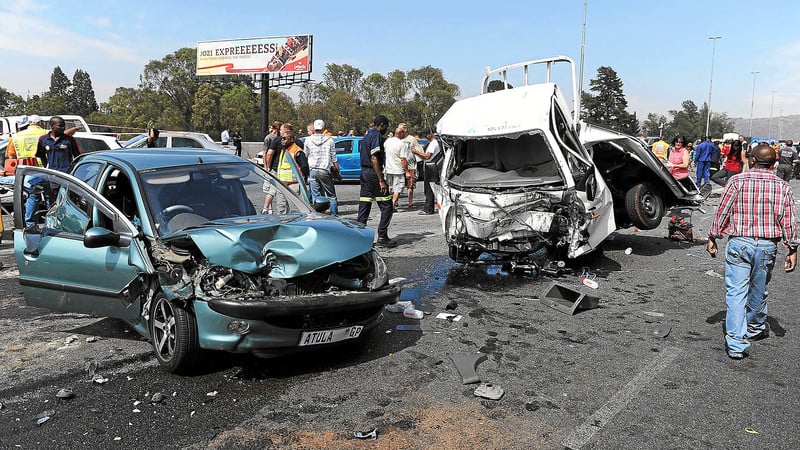411
Joburg Road Safety Summit Aims to Tackle South Africa’s Road Carnage Crisis

Experts, policymakers, and stakeholders gathered in Johannesburg on November 26-27 for a Road Safety Summit hosted by the Road Traffic Management Corporation (RTMC) in partnership with Uber. With South Africa’s roads seeing some of the highest fatality rates globally, the summit aimed to evaluate progress, identify challenges, and create actionable strategies to combat road deaths.
This summit, a continuation of 2023 discussions, comes ahead of the busy holiday season, notorious for its increase in road accidents. The RTMC emphasized its commitment to achieving the goals outlined in the National Road Safety Strategy 2016 to 2030 (NRSS), which targets a 50% reduction in fatalities by 2030.
South Africa’s Road Safety Goals
In 2010, South Africa recorded 13,967 road fatalities. By 2023, this number had reduced by 15% to 11,883 fatalities, though it fell short of the target of an 18% reduction to 11,500 deaths. The RTMC and the Department of Transport acknowledged the progress but highlighted the need for accelerated action to meet the 2030 goal.
Globally, only 10 countries have achieved a 50% reduction in road fatalities. South Africa, however, has been slow to match these successes, with a significant proportion of accidents stemming from road user behavior and inadequate infrastructure.
“With only six years remaining until 2030, there is still much work to be done,” said the RTMC.
Key Challenges on South African Roads
1. Road User Behavior
The RTMC noted that 90% of road fatalities result from road user behavior, including:
- Speeding in high-risk areas.
- Drink driving and failure to wear seat belts.
- Distracted driving, such as texting while driving.
2. Pedestrian Safety
South Africa’s roads are especially dangerous for pedestrians, who account for 43% of road fatalities. Many fatalities occur in high-conflict zones where vehicles and pedestrians share poorly maintained roads.
3. Youth at Risk
Motorists aged 25-39 years carry the highest risk of fatal crashes, accounting for 41.4% of road fatalities. The economic and social cost of these deaths disproportionately affects employed youth and their families.
4. Infrastructure Challenges
The country’s infrastructure struggles exacerbate road safety issues, with potholes and malfunctioning traffic lights creating dangerous conditions. These problems are particularly acute at night and during weekends, when enforcement is limited.
Summit Objectives
The RTMC outlined several goals for the summit, focusing on fostering collaboration across sectors to address persistent challenges.
Key Focus Areas:
- Strengthening collaboration between civil society, businesses, and government.
- Enhancing traffic law enforcement, particularly at night and on weekends.
- Expanding awareness campaigns on seat belt use and the dangers of drinking and driving.
- Reducing speed limits in high-risk areas.
- Advancing vehicle safety standards through stricter regulations.
- Addressing infrastructure maintenance, including potholes and traffic light repairs.
The summit also prioritized the development of actionable road safety plans to be implemented within 12 months.
Multi-Stakeholder Solutions
The Department of Transport has initiated a comprehensive evaluation of the NRSS, aiming to address gaps and build on progress. Public-private partnerships were highlighted as crucial to achieving long-term road safety improvements.
“Public-private partnerships are vital not just for delivering infrastructure but also for creating a safer road environment,” the RTMC stated.
Uber, a key partner at the summit, emphasized the role of technology and innovation in reducing accidents, including initiatives like driver monitoring systems and safe driving programs.
A Safer Road Ahead
With the holiday season looming, the RTMC urged South Africans to remain vigilant and responsible on the roads. Efforts to address behavior, infrastructure, and enforcement must be scaled up to meet the ambitious 2030 goals.
As the summit concludes, the RTMC and its partners are optimistic that the actionable plans developed during the discussions will pave the way for safer roads across South Africa.
“Reducing road carnage requires a collective effort. Together, we can create a road environment that values and protects every life,” the RTMC concluded.















